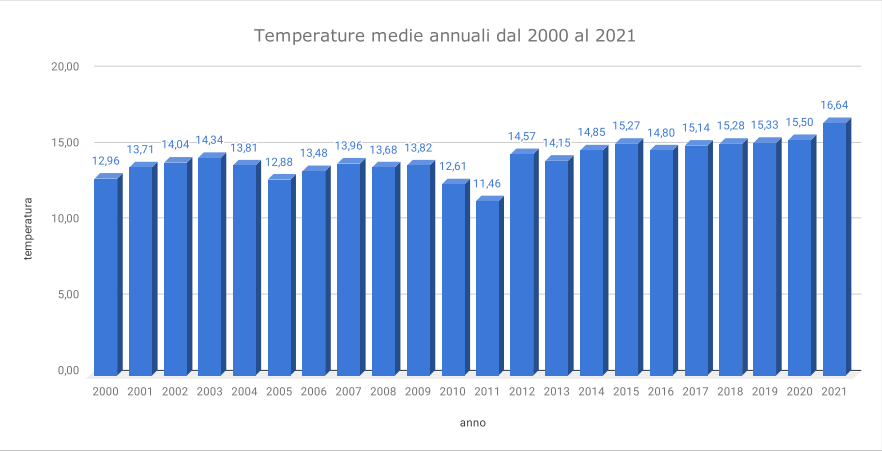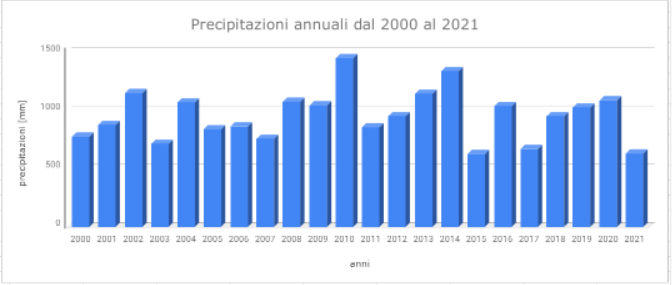Project title: Climate changes and their effects on made in Italy in Franciacorta (Brescia)
Team: Franciacorta Wine&Oil
Licei Paritari Isaac Newton Brescia Italy 10 Student’s age: 14-15 years old
How has agriculture production of wine & oil changed due to climate changes?

We are a class of students of the Isaac Newtoon high school, that took part in the Esero project, as a topic we chose the decline in production of Oil and Wine in Brescia and surroundings.
Coldiretti says The severe drought in the northern countryside caused by winter rainfall halved (-50%) compared to the average historical is only the last chapter of the devastating effects of climatic anomalies on Italian agriculture with recurrence of extreme events that cost over 14 billion euros in a decade of agricultural production losses and damage to structures and infrastructures in the campaigns.

In the last 10 years we can see a very solid and almost always similar production of oil and wine. Starting from 2011 until 2017 we have a similar annual average of around 1300 hectoliters of wine and oil.
In 2018 we have a strong increase in this production which, however, is stopped the following year with the onset of the pandemic and even more in the years 2020 and 2021. The worsening of the climatic situation and the temperature increases have hindered farmers even more in the collection and production of oil and wine.
In order to reduce the negative consequences of this situation, we could all try to do many things in our daily life, starting from the easiest aspects of life, like the waste sorting, a sustainable consumption of electricity, resources, renewable sources of energy, preferring car-sharing, electric cars or public transports instead of our cars.
https://vittoriotosi15.wixsite.com/bresciaoliovino
Projects are created by the teams and they take the full responsibility of the shared data.
← All projects



